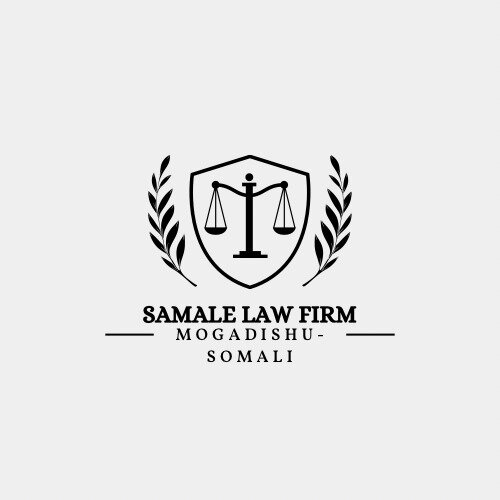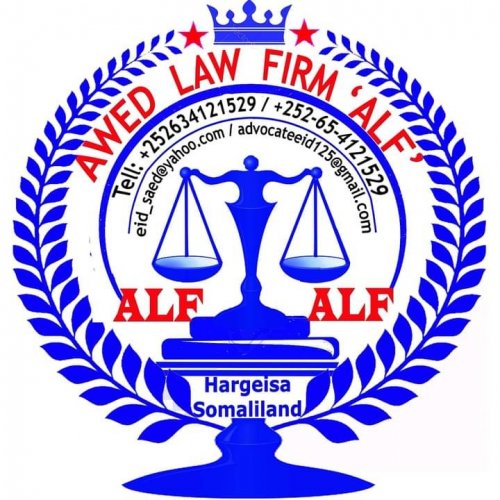Best Education Law Lawyers in Somalia
Share your needs with us, get contacted by law firms.
Free. Takes 2 min.
Or refine your search by selecting a city:
List of the best lawyers in Somalia
About Education Law in Somalia
Education Law in Somalia encompasses a variety of regulations and legal frameworks that govern the educational system. This includes policies on educational rights, school administration, curriculum standards, teacher qualifications, and the protection of students' rights. The Somali government has made efforts to improve the education system, although challenges remain due to historical conflicts and the need for more resources and infrastructure.
Why You May Need a Lawyer
Individuals may require legal assistance in Education Law in various situations, such as disputes over school admissions, cases of discrimination or harassment within educational institutions, disciplinary actions against students or teachers, issues concerning educational accommodations for children with disabilities, and navigating the complexities of educational policies and reforms. A lawyer specializing in Education Law can provide guidance, represent individuals in legal proceedings, and help ensure that educational rights are upheld.
Local Laws Overview
Key aspects of Education Law in Somalia include the right to education for all children, the responsibility of the government to provide educational facilities and resources, and regulations regarding the operation of both public and private educational institutions. The Somali federal government works with regional administrations to implement educational policies. Legal frameworks also address the need for equitable access to education and aim to tackle barriers faced by marginalized communities.
Frequently Asked Questions
What is the legal age for compulsory education in Somalia?
The legal age for compulsory education in Somalia typically ranges from 6 to 14 years old. However, practical implementation varies depending on the availability of educational resources.
Are there laws protecting students with disabilities in Somali schools?
Yes, there are regulations aimed at protecting the rights of students with disabilities, ensuring they receive necessary accommodations and support within educational institutions.
Can parents choose home-schooling for their children instead of formal schooling?
Home-schooling is not widely regulated in Somalia, and parents are generally encouraged to send their children to formal educational institutions to ensure they receive a comprehensive education.
How are disputes between teachers and school administrations typically resolved?
Disputes between teachers and school administrations are often resolved through internal mediation processes, but legal intervention may be necessary in cases involving significant conflicts or rights violations.
What rights do students have if they face unfair treatment in school?
Students have the right to a fair educational experience and can seek legal recourse if they face unjust treatment, such as discrimination or harassment, within their schools.
What qualifications must teachers have to work in Somali schools?
Teachers are required to have relevant educational qualifications and certifications, though specific requirements can vary by region and type of institution.
Are there legal provisions for religious education in public schools?
Public schools in Somalia may include elements of religious education, reflecting the country's predominantly Islamic cultural context. However, religious education must not infringe on the rights to education of students from all backgrounds.
How are private schools regulated in Somalia?
Private schools must comply with regulations set by local education authorities, which include adherence to approved curricula and maintaining educational standards.
What resources are available for parents of students facing educational challenges?
Parents can access support from local education departments, advocacy groups, or legal professionals who specialize in education law matters.
Can international students receive education in Somalia?
International students may attend schools in Somalia, provided they meet admission requirements and comply with local laws. Specific guidance is available through the Ministry of Education and regional education offices.
Additional Resources
Those seeking more information on Education Law in Somalia can reach out to the Ministry of Education, Culture and Higher Education, legal aid organizations, or advocacy groups focused on educational rights. Non-governmental organizations (NGOs) working in the area of education may also provide valuable support and resources.
Next Steps
If you need legal assistance in the field of Education Law in Somalia, consider reaching out to a lawyer who specializes in this area. It is essential to gather any relevant documentation, understand your rights and the educational policies involved, and seek professional advice. You can also contact the local education department for additional guidance and support in addressing your specific legal needs.
Lawzana helps you find the best lawyers and law firms in Somalia through a curated and pre-screened list of qualified legal professionals. Our platform offers rankings and detailed profiles of attorneys and law firms, allowing you to compare based on practice areas, including Education Law, experience, and client feedback.
Each profile includes a description of the firm's areas of practice, client reviews, team members and partners, year of establishment, spoken languages, office locations, contact information, social media presence, and any published articles or resources. Most firms on our platform speak English and are experienced in both local and international legal matters.
Get a quote from top-rated law firms in Somalia — quickly, securely, and without unnecessary hassle.
Disclaimer:
The information provided on this page is for general informational purposes only and does not constitute legal advice. While we strive to ensure the accuracy and relevance of the content, legal information may change over time, and interpretations of the law can vary. You should always consult with a qualified legal professional for advice specific to your situation.
We disclaim all liability for actions taken or not taken based on the content of this page. If you believe any information is incorrect or outdated, please contact us, and we will review and update it where appropriate.
Browse education law law firms by city in Somalia
Refine your search by selecting a city.










